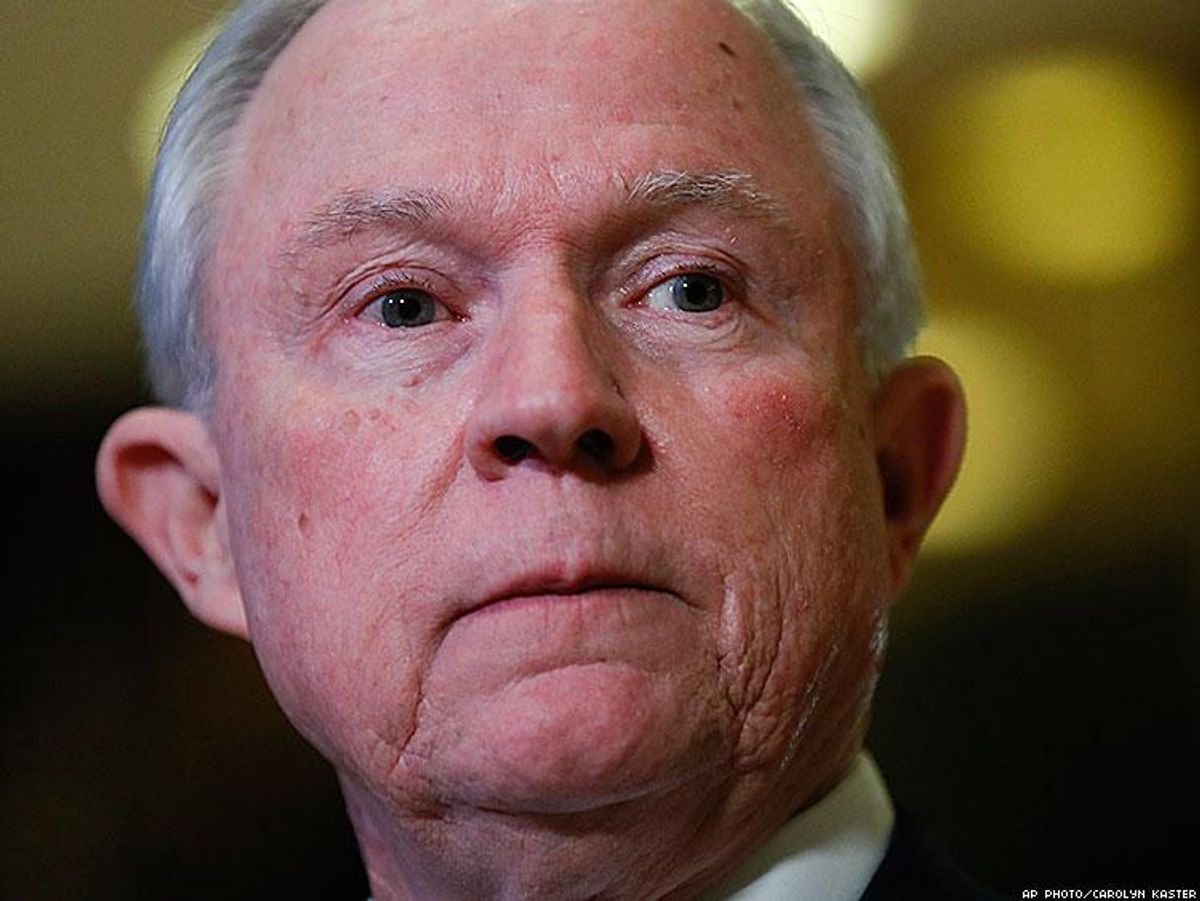Politics
Jeff Sessions, Trump's AG Nominee, Tried to Stop LGBT Conference in Alabama

Sessions was already known as virulently anti-LGBT, but this revelation provides even more evidence.
Trudy Ring
Trudy Ring is The Advocate’s senior politics editor and copy chief. She has been a reporter and editor for daily newspapers and LGBTQ+ weeklies/monthlies, trade magazines, and reference books. She is a political junkie who thinks even the wonkiest details are fascinating, and she always loves to see political candidates who are groundbreaking in some way. She enjoys writing about other topics as well, including religion (she’s interested in what people believe and why), literature, theater, and film. Trudy is a proud “old movie weirdo” and loves the Hollywood films of the 1930s and ’40s above all others. Other interests include classic rock music (Bruce Springsteen rules!) and history. Oh, and she was a Jeopardy! contestant back in 1998 and won two games. Not up there with Amy Schneider, but Trudy still takes pride in this achievement.
Trudy Ring is The Advocate’s senior politics editor and copy chief. She has been a reporter and editor for daily newspapers and LGBTQ+ weeklies/monthlies, trade magazines, and reference books. She is a political junkie who thinks even the wonkiest details are fascinating, and she always loves to see political candidates who are groundbreaking in some way. She enjoys writing about other topics as well, including religion (she’s interested in what people believe and why), literature, theater, and film. Trudy is a proud “old movie weirdo” and loves the Hollywood films of the 1930s and ’40s above all others. Other interests include classic rock music (Bruce Springsteen rules!) and history. Oh, and she was a Jeopardy! contestant back in 1998 and won two games. Not up there with Amy Schneider, but Trudy still takes pride in this achievement.
December 02 2016 12:15 PM EST
December 02 2016 12:39 PM EST
trudestress

















































































